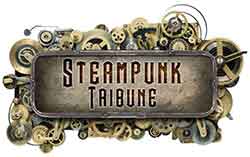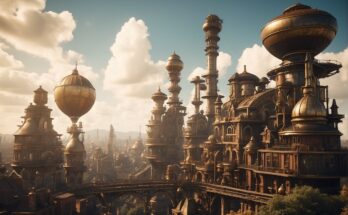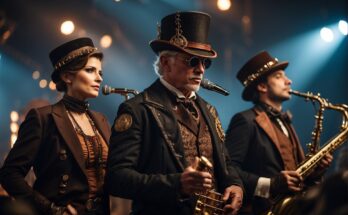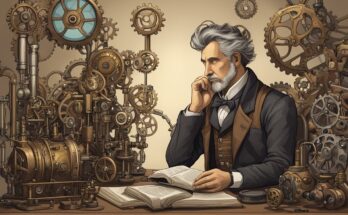Theodore “Teddy” RooseveltBorn 1858, Died 1919 Age 43, 56″, 200 lbs. A muscular, energetic man with light brown hair and piercing blue eyes shining our from behind pince-nez glasses, and gleaming white teeth put on display whenever he smiles.Advantages: Charisma, Fit, Reputation (National Hero, in America), Reputation (Internationally respected figure), Strong Will, Wealthy, Disadvantages: Bad Sight, Bad Temper, Code of Honor (Gentlemans), Impulsiveness, Sense of Duty (to USA and its citizens), StubbornnessQuirks: Characteristic expression “Bully!”; Likes strenuous activity; Overwhelmingly boisterous, slightly careless with moneyBiography
As a child (born in New York City), Theodore Roosevelt was afflicted with asthma and a frail physique. Exhorted by his father to “make your own body”, he build up his physical fitness through sheer will power and determination. By the time his father died in 1878, Roosevelt was a fine physical specimen.Posing for a Presidential PortraitA first, he was considered a very poor scholar. It turned out, however, that his problems were caused by undiagnosed poor eyesight. Soon after he was fitted with glasses, he shot to the top of his class; he was elected to the prestigious Phi Beta Kappa honor society, and graduated from Harvard.
In his “Rough Rider” uniformRoosevelt briefly spend some time studying law, but soon discovered that it bored him. So, instead, he became a an armchair historian and published the first of a long series of books in 1882. At about that time, he also began his political career, as a New York State assemblyman.
Then he suffered a double tragedy; his mother and wife died on the same day. Seeking to escape his grief, he went out to North Dakota and threw himself into ranching. But he couldnt stay away from politics, and within two years, he was back in New York, running unsuccessfully for mayor and taking a second wife.
Over the next few years, he served as a Civil Service Commissioner, Police Chief Commissioner, and Assistant Secretary of the Navy. Throughout this skyrocketing career, he consistently displayed two qualities: a burning desire to vanquish corruption and fight for the “little guy”, and an unerring ability to publicize himself and his crusades. Corrupt politicians disliked him intensely, but the man on the street loved him.Photo with the “Rough Riders” in CubaRoosevelt catapulted himself into the limelight during the Spanish-American War in Cuba. He resigned his office, volunteered for military service, and organized the cavalry force known as the Rough Riders. His position as national hero was secured when he led his Rough Riders in their successful charge up San Juan Hill. Returning from Cuba, he immediately made a successful run to be Governor of New York.Roosevelt had been supported in this effort by New Yorks influential “king-maker”, Thomas Collier Platt. However, the new Governors successful efforts to expose corruption in New York politics (and his rather less successful efforts to clean it up), annoyed Platt so much, that he decided to get rid of him by making him Vice-President of the U.S.A. In 1900, Roosevelt was elected as number two to William McKinley. A few months later, however, President McKinley was assassinated by a crazed gunman, and Roosevelt was President.
Making speeches on the campaign trailRoosevelts accomplishments in his two terms as President were legion. Among the more notable were his successful efforts at “trust-busting”, the Pure Food and Drug Act, the establishment of the National Conservation Commission, the establishment of the National Park System, and the building of the Panama Canal. In the middle of this, he also found time to become the first American to win the Nobel Prize, by mediating the Russo-Japansese war.Instead of resting after he left the White House, Roosevelt kept himself busy writing, traveling abroad, and acting as a sort of unofficial diplomat. By 1912, he got bored with that and ran for a third term as President, this time at the head of a third party called the “Bull Moose” (or Progressive) party. However, he lost that battle. To take his mind off that, he went on a harrowing expedition into the Brazilian jungle, which damaged his health permanently. However, he kept active, supporting the allies in WW1, and then opposing President Wilsons support for the League of Nations, and pushing himself at top speed until he died peacefully in his sleep on January 6, 1919.
Taking flight in an experimental “aero-plane”…Encountered
The impression taken away by anyone who meets Roosevelt is of overwhelming energy, and perpetual motion. The man is almost literally incapable of relaxing (his idea of “goofing off” is to indulge in strenuous exercise). Individuals expecting a dull, solemn meeting with the Chief Executive should be blindsided by encountering him in the most unusual places up a tree, perhaps, or emerging from one of his notorious skinny-dips in the Potomac. His opinions are strong and honestly held, if sometime crankish to modern eyes.
Although he lost some elections, Roosevelt is a formidible political operator; he can make speeches on the stump, manipulate the new power of the media, or mediate among world leaders.Futher Reading
Brand, H.W.,: TR: The Last Romantic
Miller, Nathan: Theodore Roosevelt, A Life
Morris, Edmund: The Rise of Theodore Roosevelt
Roosevelt, Theodore: An AutobiographyStoddard, W. (1999) – Gurps Who’s Who II, pg. 96-97, SJG:Austin[edited for removal of game specific content]Internet resources:




